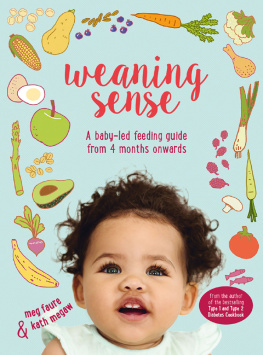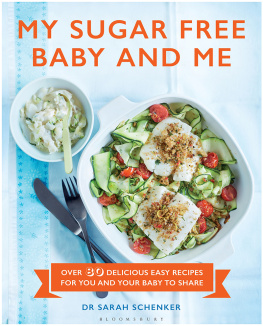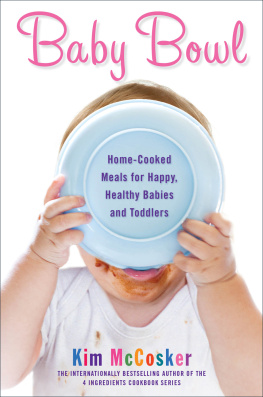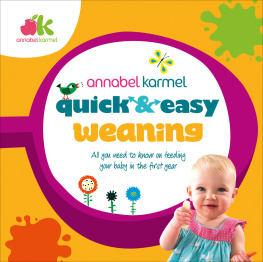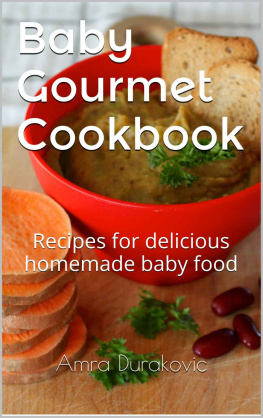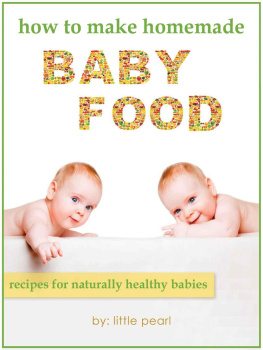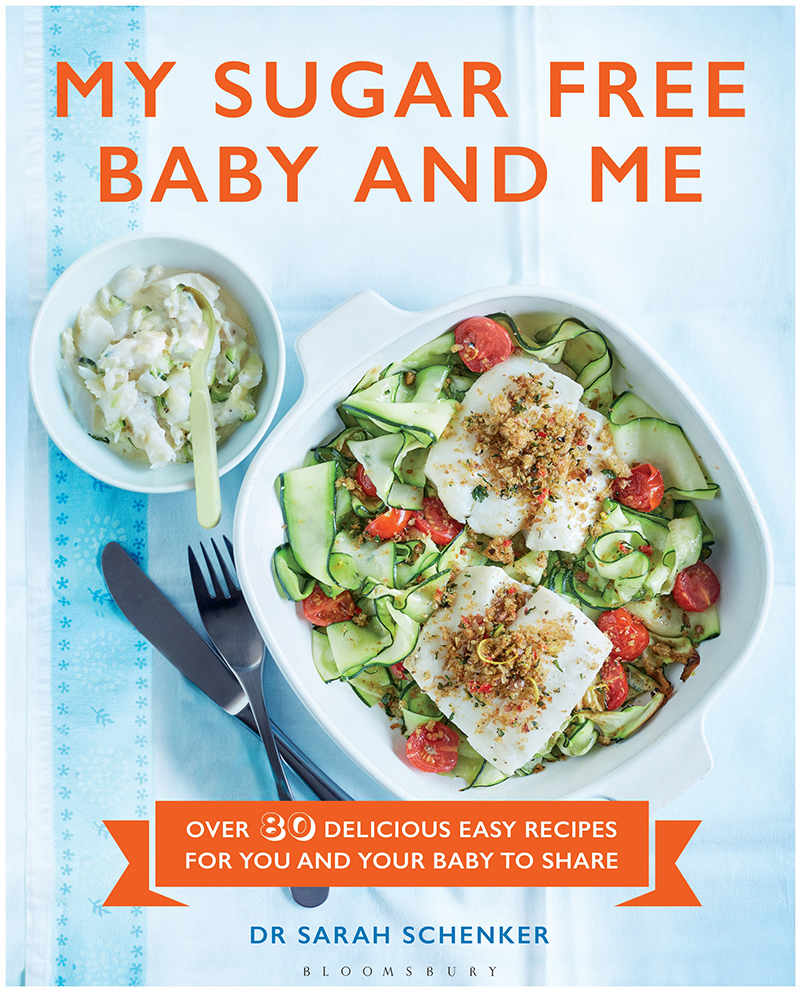
CONTENTS


COOK'S NOTES
MEASUREMENTS
All spoon measures are rounded unless otherwise stated
1 tbsp is 15ml
1 tsp is 5ml
If you prefer to work in ounces:
1oz is 25g
A pinch is approximately of a tsp
A handful of herbs or leaves is approximately 25g
OVENS
All recipes were tested in a conventional oven. If using a fan-assisted oven, set the temperature 10 C lower than stated in the recipes.
INGREDIENTS
Use low salt stock cubes or gels.
Use relatively fresh jars of spice, although they last for ages they lose a lot of their flavour the older they are.
Use medium-sized eggs unless otherwise stated and when baking, remember to use room temperature eggs.
Use grass fed cows butter or you can substitute butter for coconut oil if you prefer.
Use either olive or rapeseed oil unless otherwise stated. Rapeseed oil has a more delicate flavour.
If using dried pulses (beans, chickpeas and lentils) soak overnight or for at least 8 hours.

STARTING SOLIDS
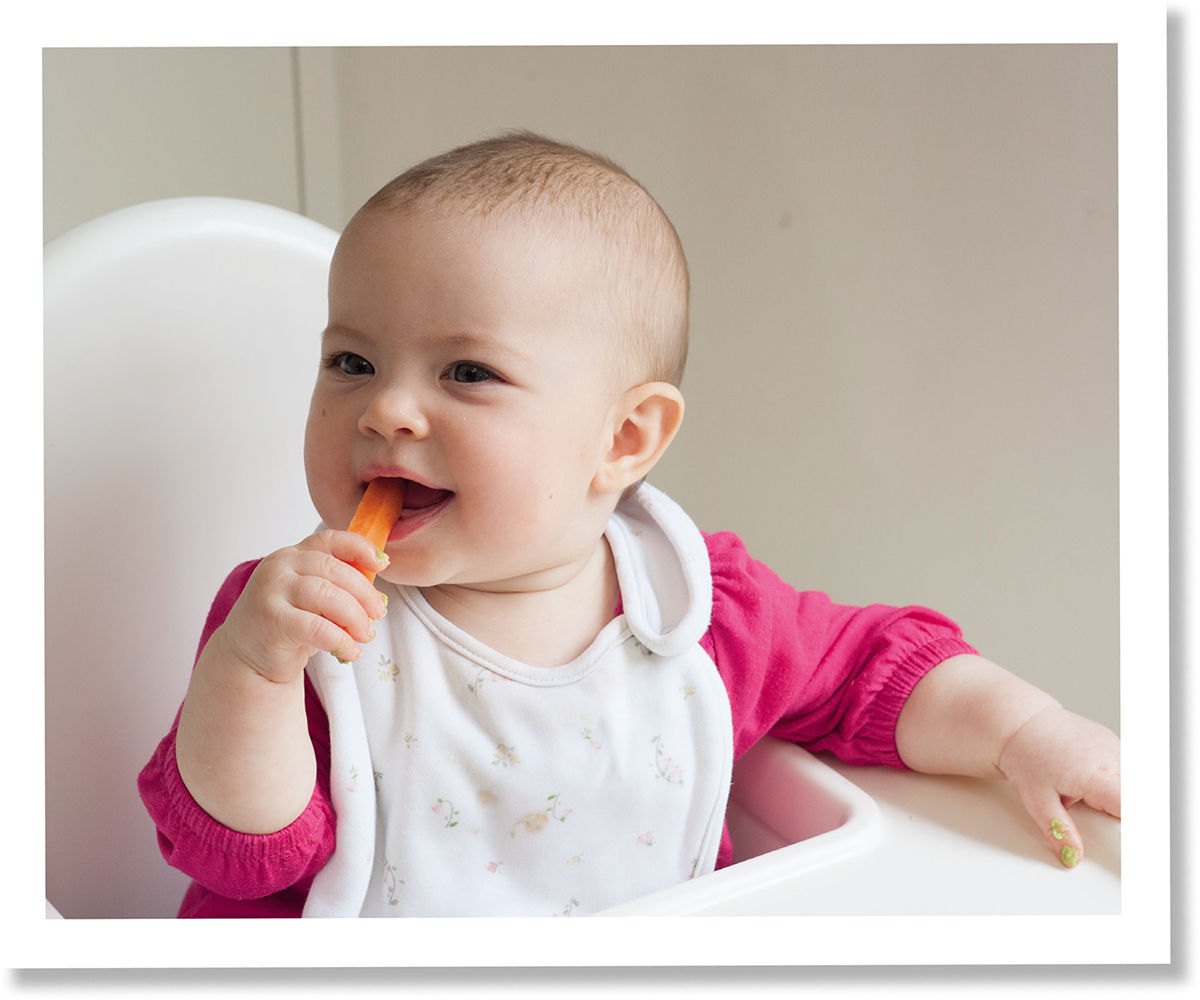
Parents know that one of the best ways to give a baby a great start in life is with wholesome homemade foods. While ready made food is a convenience that any new parent can appreciate, feeding everyday fresh foods is the best way to teach a child healthy eating habits and a love of good food from the very beginning.
whitespace
STARTING SOLIDS
As the mum of two lovely young boys I have been through the fun and antics of weaning twice, and as a dietitian I have helped and advised numerous new parents on weaning their babies. Many challenges can arise during this process and it is understandable to feel anxious or need some reassurance. This book is here to guide you through your weaning journey, making it fun, easy and above all healthy for both your baby and you.
Starting solids is one of the great milestones of your babys first year of life. It is one of those subjects that everyone has an opinion about, along with the best wipes to use and whether your baby ought to be crawling by now.
One of the biggest questions is when to begin. Just a generation or two ago, babies were commonly started on solid foods at the tender age of 6 weeks, so dont be surprised if you hear that from a well-meaning grandma. The advice has changed, and experts now recommend exclusive breastfeeding (or formula feeding) for at least 17 weeks. This is because your babys gut and the immune system are still somewhat under-developed at this stage. Some experts recommend that solids shouldnt be given until a baby is six months old, others say that it is acceptable to offer foods a little earlier, at four months, but warn that early introduction of foods has been linked to food intolerance, diabetes and obesity.
Parents often worry that their baby needs more to eat than just milk or formula before the age of six months, and a baby going through a growth spurt can certainly seem ravenous. But babies can usually thrive this long on a liquid diet alone. In fact, breast milk or formula should make up the majority of a babys diet until his first birthday. Until then, rather than supplying your babys primary source of nutrition, feeding solids is a way for parents to let their baby explore a world of new tastes, textures and temperatures; practise the skills of eating; and learn to enjoy and appreciate the social aspects of mealtimes.
No two babies are the same and ultimately you should follow your instincts about when to offer your baby his first taste of solid food. While I dont advocate starting on the very day he turns four months, I also dont think that waiting until the six-month mark is the right thing to do if all it does is cause misery and anxiety. Both of my boys started on solids aged around five to five-and-a-half months as they were showing clear signs that they were interested in food. If you are unsure your baby is ready, then leave it a little longer. A hungry growing baby may just need additional feeds, and first solids are not designed to fill him up. You may very well find that the first time you offer baby a mouthful of mashed banana they turn away or spit it out (he may be more interested in playing with it), in which case you can leave it for a few days and try again .
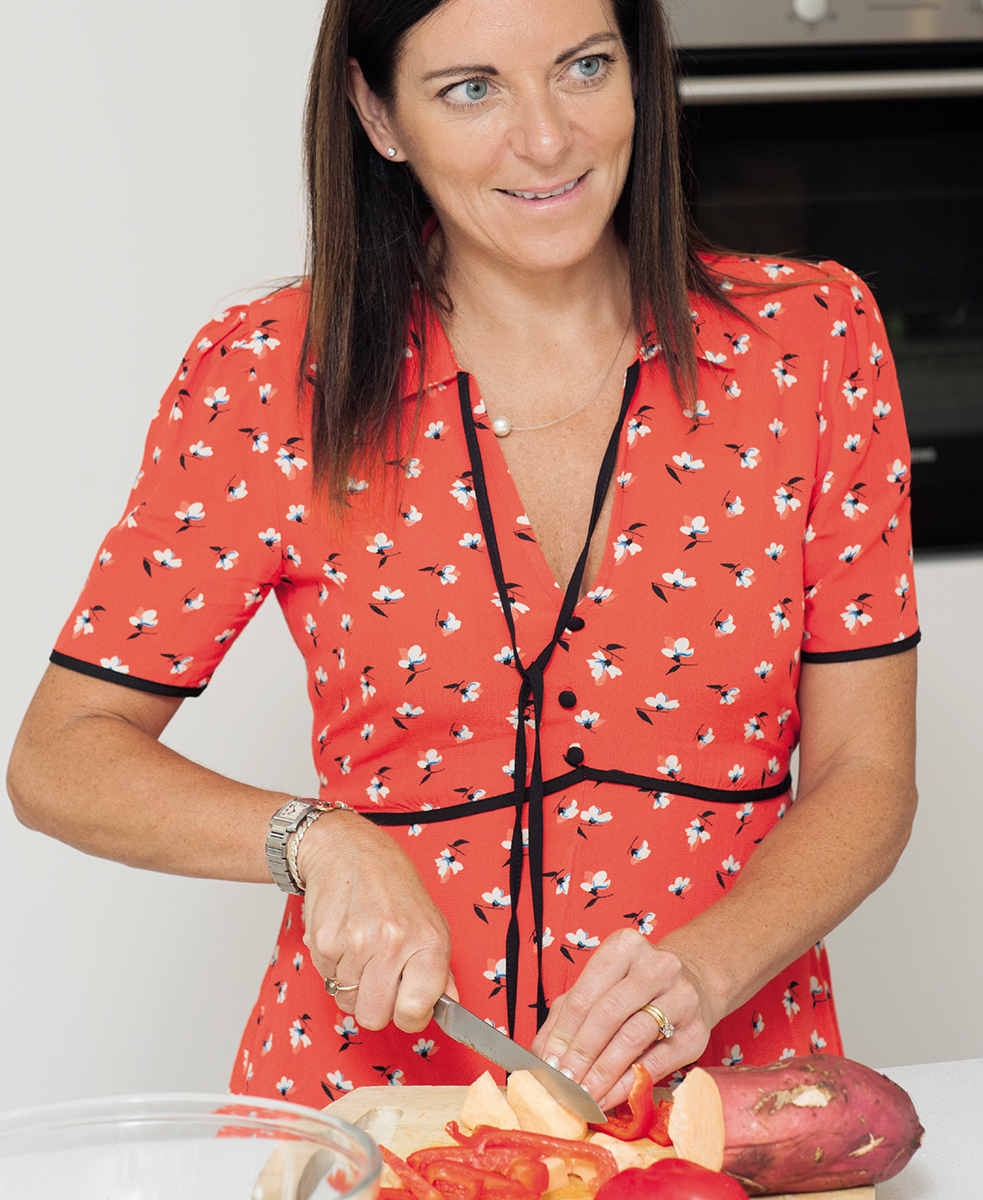
FOLLOW BABYS CUES
The best way to tell whether your baby is ready to start solids is to watch for cues. Here are some signs that show the time is right to begin offering food:
Your baby is able to sit up well on her own without your assistance.
Your baby is able to turn her head towards you when you are offering food (or turn it away).
Your baby develops a persistent pattern of remaining hungry after the usual feeding.
Your baby watches you when you eat and tries to grab your food.
Your baby can swallow pured food rather than reflexively spitting it out.
WHOLESOME AND HOME-MADE
New mums are sleep-deprived, dog-tired and even a little shell-shocked as they find their bundle of joy has turned their world upside down and is constantly demanding. On top of that your body is still recovering from the trauma of childbirth. However, finding the time to make wholesome meals for your baby and yourself should be a top priority. The foods you give your baby now, in the earliest months, will help shape your childs taste for many years to come. Moreover, choosing to eat the same good food will nourish and heal your body; give you sustained energy to get you through the day; provide nutrients to ensure a healthy supply of breast milk; and ensure good nutrition to balance hormones, which will impact on your ability to deal with tiredness, mood swings and the sensation of just feeling completely overwhelmed.
A friend of mine told me about the night her husband came home late from work to find her up to her elbows in fruit peelings as she made huge batches of pures, while polishing off a packet of Jaffa Cakes and a bottle of ros! I also had a few moments when I thought I couldnt cope without wine and chocolate, but it tends to backfire, as the inevitable sore head the next day will be even harder to bear when you feel even more exhausted. Eating well now gives you more energy for your baby.
If you feed your baby only bland, processed baby food and cereals, your baby will become accustomed to bland, processed food. On the other hand, if you feed your baby a variety of fresh veg, fruit, grains, meat and fish flavoured with herbs and spices, you are priming his palate for a lifetime of healthy eating habits. And its the same for you; if you rely on packets of biscuits and sugary drinks to get you through the day, all you are doing is creating a rollercoaster of energy highs and lows. Each time your energy levels crash, youll reach for the next sugary snack and the whole process is repeated. This can have a disastrous result on your weight. I have often found with clients that the real damage to their weight happened after, not during pregnancy as they just didnt think about looking after themselves during such a hectic time.


